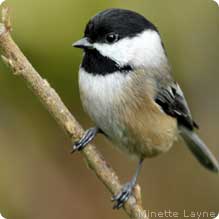
How do birds survive the winter? One example is the Chickadee, a familiar visitor at our bird feeder. The Chickadee has a remarkable adaptation to survive winter’s below freezing temperatures. It’s called ‘torpor’ or regulated hypothermia. At night, the Chickadee is able to lower its body temperature to around 15 degrees below normal. This helps conserve 25% energy. In order to make up energy lost during the night, however, the bird must consume an enormous quantity of high fat content seeds and insects during the daylight hours. That’s why when watching Chickadees at your bird feeder, their activity never seems to stop!
